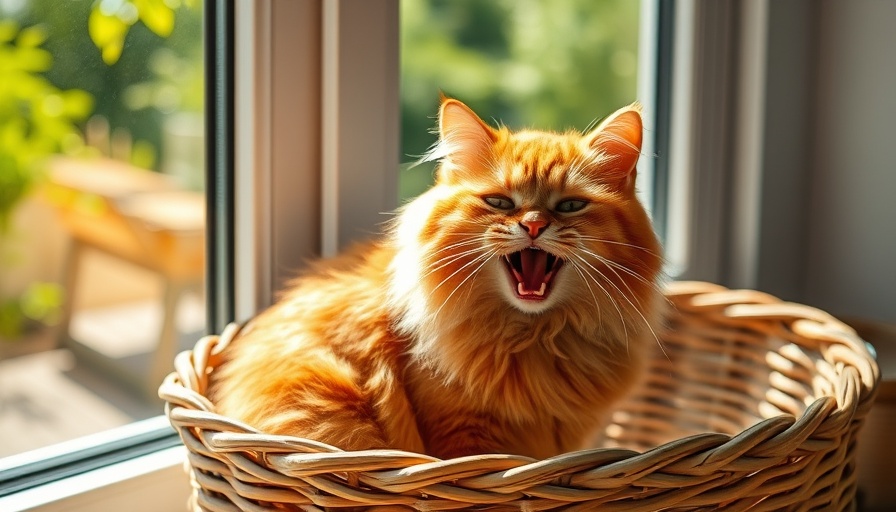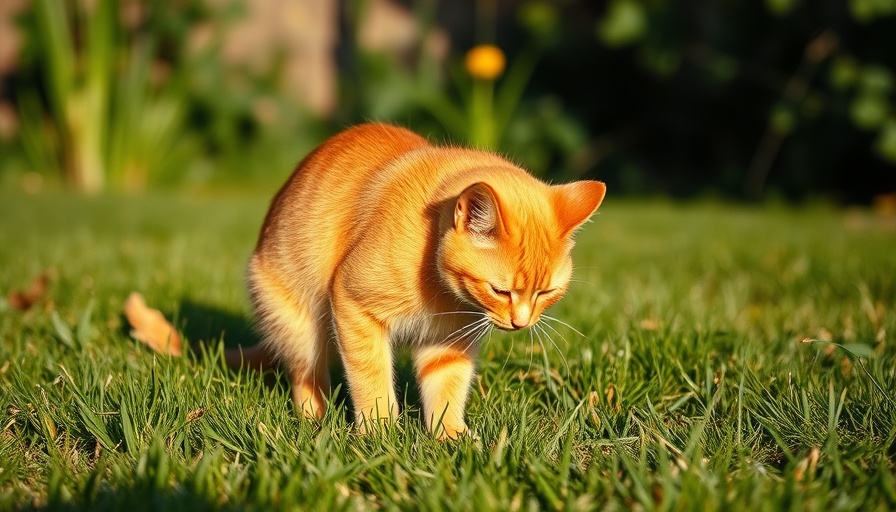
The Curious Case of Cat Coughing: What Every Pet Parent Should Know
Coughing in cats might seem like a minor annoyance at first glance. However, this reflex action can signal everything from simple irritants in the airways to serious underlying health issues. Understanding the nuances of cat coughing is crucial for pet owners who want to ensure their feline friends remain healthy and happy. Let's dive into the reasons your cat may be coughing and when it's time to dial the vet.
Why Does Your Cat Cough?
Cats cough to clear their airways of irritants or inflammation. Much like humans, the act of coughing acts as a protective reflex, designed to rid the body of substances that could hinder breathing. The causes of coughing in cats can range widely and include:
- Infections: Viral or bacterial infections can lead to respiratory illness, causing inflammation in the lungs or throat.
- Allergies: Environmental allergens like pollen, dust, and mold can trigger coughing as your cat’s body reacts to these foreign substances.
- Foreign Objects: Occasionally, cats may inhale small objects, leading to irritation and coughing. This is an emergency situation that requires immediate veterinary attention.
- Heartworm: Although primarily associated with dogs, heartworm can affect cats and pose serious health risks.
- Asthma or Bronchitis: Chronic inflammatory conditions can lead to severe coughing and wheezing in cats.
Identifying the Type of Cough
Not all cat coughs sound the same. They may range from a dry, hacking sound to a deeper, more concerning wheeze. Pet owners should listen carefully to their cat's cough to help differentiate it from other sounds. For instance, reverse sneezing is a distinct noise caused by irritation in the throat, often mistaken for a cough, where the cat inhales rather sharply.
When Should You Worry?
Knowing when to seek veterinary care is essential. If your cat exhibits any of the following symptoms alongside coughing, it's crucial to act quickly:
- Bluish Gums: This is a sign of potential oxygen deprivation, which can be life-threatening.
- Lethargy: If your cat seems unusually tired or disinterested in activities they normally enjoy, this is a worrying sign.
- Blood-Tinged Mucus: This indicates serious underlying health concerns that require immediate vet assistance.
Coughing that is persistent or intensifies over time should also prompt a visit to your veterinarian. Conditions such as asthma are manageable, but they require a proactive approach to ensure your cat's quality of life.
What Types of Treatments Are Available?
Treatment for cat coughing varies based on the underlying cause:
- Antibiotics: Necessary for bacterial respiratory infections.
- Anti-inflammatories: Medicines can help reduce swelling and ease breathing.
- Bronchodilators: These medications help open the airways for easier breathing.
- Parasite Control: If heartworm is involved, specific anti-parasitic treatments are vital.
- Surgery: In extreme cases where foreign objects are lodged in the airway, surgical intervention may be necessary.
Take Control of Your Cat's Health
The bond between a pet parent and their cat is a special one. Caring for your feline friend's health doesn't stop at feeding and grooming; it includes being observant and proactive when it comes to their wellbeing. If your cat starts coughing, don’t panic, but do take action. Regular vet check-ups and being informed about potential health issues can save your cat's life.
Every cat deserves the best quality of life, and that often begins with paying attention to their health signals. It's time to take charge—schedule a vet appointment if your cat shows any troubling symptoms. Your furry companion is counting on you!
 Add Row
Add Row  Add
Add 


Write A Comment